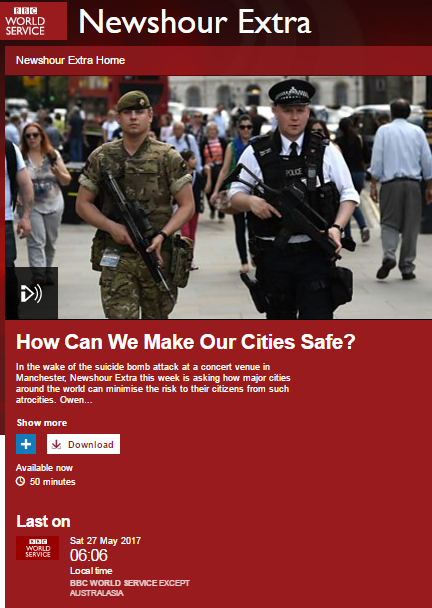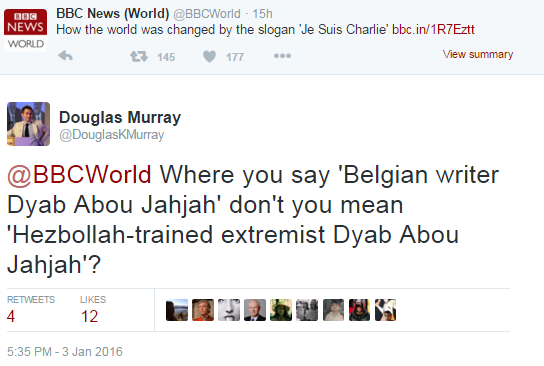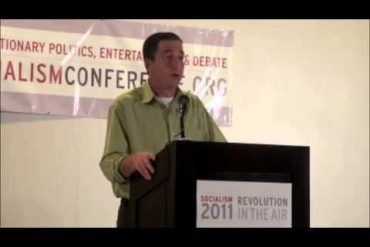Over the last decade and a half BBC audiences have grown very used to hearing Israel’s anti-terrorist fence described as “controversial” or even worse. Despite the fact that the BBC’s ‘style guide’ instructs its staff to use the term ‘barrier’ to describe the structure, audiences very often hear or see it described as “the wall”. Not only is it is extremely rare for audiences to be informed of that counter-terrorism measure’s record of effectiveness, but BBC produced content frequently promotes the propaganda myth that it is intended to facilitate a “land grab” rather than to curb the number of Palestinian terror attacks against Israeli civilians.
Following the terror attack in Manchester the BBC World Service radio programme ‘Newshour Extra’ – presented by Owen Bennett-Jones – devoted its May 27th edition to the question “How Can We Make Our Cities Safe?“.
“In the wake of the suicide bomb attack at a concert venue in Manchester, Newshour Extra this week is asking how major cities around the world can minimise the risk to their citizens from such atrocities. Owen Bennett Jones and his guests consider urban security, counter-terrorism, and the compromises different cities make between civil liberties and public safety.”
Although one might have thought that Israel – with its sadly considerable experience of tackling that topic – would have featured in such a discussion, the sole brief reference to Israeli counter-terrorism measures appeared at 14:41 when Bennett-Jones addressed a bizarrely expressed question to one of his three guests; Professor Bill Durodie of the University of Bath. [emphasis added]
Bennett-Jones: “Professor Durodie; let me just put one example to you of a physical barrier – highly controversial and politically charged as it is – that seems to have made a difference and that is the wall – stroke – security fence – stroke – fence – stroke – whatever, you know, whoever…wherever you’re coming from what you’d call it – between the Israelis and the Palestinians which does seem to have made a significant difference in security terms.”
Durodie: “It probably has. Ehm…I think most people understand that it’s highly porous at the same time and that determined individuals get round it as well as, you know….”
Bennett-Jones [interrupts]: “Well, well not really. I mean the number of attacks is sharply, sharply down, isn’t it, since that went up.”
Durodie: “I agree but ultimately we have to question what kind of open society we want to live in…”
In short, even in a programme specifically relating to security and counter-terrorism that ostensibly sets out to inform listeners what other countries do to “minimise the risk to their citizens” and even as we see that the BBC clearly appreciates both the purpose and the efficacy of the anti-terrorist fence, the corporation cannot resist promoting its knee-jerk “controversial” theme and refrains from informing audiences of the actual statistics relating to the reduction in attacks following construction of the structure.




